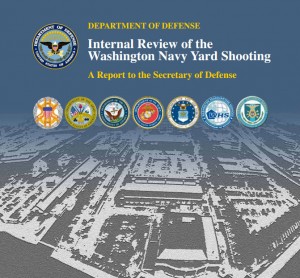DICE Principles one, two and three: Do the right thing when no one is looking. Live with honor. Have integrity every day. Stealing secrets, stealing fuel, stealing money–it’s all the same and done in the same way through vulnerabilities, relationships, recruitments, wanting revenge, wanting to get rich quick instead of earning money honorably.
U.S. military personnel have been convicted of $50 million worth of crimes in Iraq and Afghanistan
Large cash transactions, loose military oversight, and deeply corrupted local cultures have lured more than a hundred service members to steal, rig contracts, and take bribes
U.S. Army Specialist Stephanie Charboneau sat at the center of a complex trucking network in Forward Operating Base Fenty, near the Afghanistan-Pakistan border, that daily distributed tens of thousands of gallons of what soldiers called “liquid gold”: the refined petroleum that fueled the international coalition’s thirsty vehicles, planes, and generators.
A prominent sign in the base read: “The Army Won’t Go If The Fuel Don’t Flow.” But Charboneau, 31, a mother of two from Washington state, felt alienated after a supervisor’s harsh rebuke. Her work was a dreary routine of recording fuel deliveries in a computer and escorting trucks past a gate. But it was soon to take a dark turn into high-value crime.
She began an affair with a civilian, Jonathan Hightower, who worked for a Pentagon contractor that distributed fuel from Fenty, and one day in March 2010, he told her about “this thing going on” at other U.S. military bases around Afghanistan, she recalled in a recent telephone interview.
Soldiers were selling the U.S. military’s fuel to Afghan locals on the side, and pocketing the proceeds. When Hightower suggested they start doing the same, Charboneau said, she agreed.
In so doing, Charboneau contributed to thefts by U.S. military personnel of at least $15 million worth of fuel since the start of the U.S. war in Afghanistan. And eventually she became one of at least 115 enlisted personnel and military officers convicted since 2005 of committing theft, bribery, and contract rigging crimes valued at $52 million during their deployments in Afghanistan and Iraq, according to a comprehensive tally of court records by the Center for Public Integrity. . . .
. . . . The magnitude of additional losses from fraud, waste, and abuse by contractors, civilians, and allied foreign soldiers in Afghanistan has never been tallied, but officials probing such crimes say the total is in the billions of dollars.
Those numbers might not seem huge — at least a million troops rotated through the region in this period, and the overall U.S. budget for these wars has so far exceeded $1.5 trillion — but those who investigate and prosecute military wrongdoing say the convictions so far constitute a small portion of the crimes they think were committed by U.S. military personnel in the two countries. . . .
. . . . Charboneau said she is now haunted by how “I was so proud to be in the military, [and then] doing what I did.” After seven years as a soldier, trained to respect and trust her supervisors completely, she said, it was “really hard” to find out that a superior was engaging in theft.
Her advice to young soldiers deploying to Afghanistan today would be to “keep to themselves, learn the job that they need to learn,” and if confronted with a proposal similar to the one Hightower laid at her feet, just say no. “It wasn’t worth the forty-some-odd thousand dollars I made to be in prison for seven years, to be away from my…family,” she said. . . . (read more cases)











